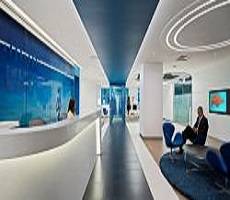April 26, 2013
Corporate culture of presenteeism leads to inequality
Over half (60 per cent) of senior executives say their productivity would be increased if their organisations played a more active role in helping them balance their work and non-work lives; the majority by 10 to 25 per cent. The research by the Inspire board network and executive search firm Harvey Nash also reveals that male dominated corporate cultures are the biggest barrier to women reaching the board, with over half (52 per cent) believing that today’s corporate cultures which celebrate presenteeism, dramatically reduce the length of time women are prepared stay and develop their career with their employer. More →

























April 29, 2013
What Søren Kierkegaard can teach us about workplace design and management
by Mark Eltringham • Comment, Facilities management, Workplace design
More →